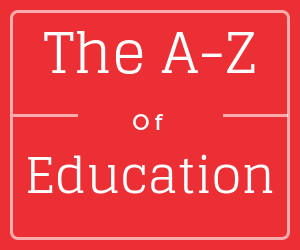Disengaged Students, Part 2: The Anti-Intellectualism of Thomas Jefferson

In this 20-part series, I explore the root causes and effects of academic disengagement in K-12 learners and explore the factors driving American society ever closer to being a nation that lacks intellectualism, or the pursuit of knowledge for knowledge’s sake.
It is easy to blame the rise of anti-intellectualism on the vagaries of the digital age, but in fact anti-intellectualism has been present in America from the beginning of our national history, and its roots lie in other civilizations.
The Roman Republic had anti-intellectual overtones, particularly when it came to assimilation of new cultures. Roman culture was seen as providing a model of the “right” way to live, speak and practice religion. Questioning, dissent and rational analysis were no more welcome in ancient Rome than in certain radical groups of contemporary Americans. Deportation of “dangerous” free-thinking groups was a common practice in Rome. The Roman fear of letting in outsiders, thus exposing Roman-born citizens to the danger of becoming the minority, is reminiscent of some American sentiments regarding immigration reform today. As the Romans learned, and as Americans have discovered, fear-driven resistance to outside change cannot keep change from happening sooner or later. The idea that control of movement over a particular group can and should be mandated by any government entity is an old one, but alive and well in American culture still.
Fear of outside influences was not the only hallmark of anti-intellectualism in America. As early as colonial times, influential men wrote about the danger of a public educated in progressive thought. The famous Puritan John Cotton spoke out against too much education, saying it made the learned “more fit to act for Satan” and therefore a danger to society.
Another problem for intellectuals in the early days of American colonialism was that they were considered less valuable than those with practical skills like farming, construction or other hands-on tasks. Lofty thoughts without clear application to the practical side of life were seen as irrelevant to the physical tasks of building a new nation. Furthermore, most of the people who arrived in early America were not part of the so-called intellectual group of Europeans. They were working folks who had reason to flee their home countries in pursuit of freedom from persecution. They possessed a type of intellectual thought that cannot be taught, but lacked the education which might have enabled them to relate those thoughts to other revolutionary and intellectual ideas in history.
Jeffersonian Contradictions
Thomas Jefferson has long been described in history books as an intellectual who was partially responsible for founding America on concepts of equality. Contemporary history, however, paints a different picture of Jefferson as a man who owned slaves and fathered illegitimate children through abuse of his master status. Jefferson didn’t actually believe in equality for all; he actually believed in limited equality as long as it benefitted his own gains. Jefferson used his education and position in society to justify his own misdeeds when it came to slavery and general treatment of people in lower classes.
While his writings contribute greatly to the causes of reason and equality, his life seems to have offered some justification for the anti-intellectual tendencies of many of his contemporary compatriots.






